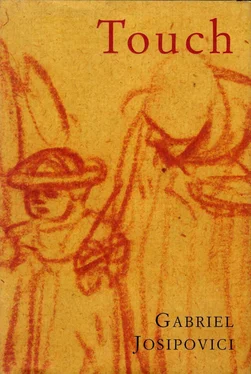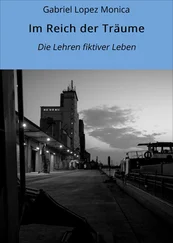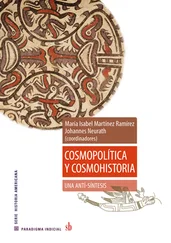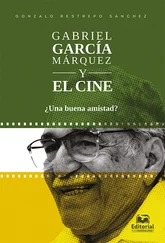Gabriel Josipovici - Touch
Здесь есть возможность читать онлайн «Gabriel Josipovici - Touch» весь текст электронной книги совершенно бесплатно (целиком полную версию без сокращений). В некоторых случаях можно слушать аудио, скачать через торрент в формате fb2 и присутствует краткое содержание. Год выпуска: 1996, ISBN: 1996, Издательство: Yale University Press, Жанр: Современная проза, на английском языке. Описание произведения, (предисловие) а так же отзывы посетителей доступны на портале библиотеки ЛибКат.
- Название:Touch
- Автор:
- Издательство:Yale University Press
- Жанр:
- Год:1996
- ISBN:0300066902
- Рейтинг книги:5 / 5. Голосов: 1
-
Избранное:Добавить в избранное
- Отзывы:
-
Ваша оценка:
- 100
- 1
- 2
- 3
- 4
- 5
Touch: краткое содержание, описание и аннотация
Предлагаем к чтению аннотацию, описание, краткое содержание или предисловие (зависит от того, что написал сам автор книги «Touch»). Если вы не нашли необходимую информацию о книге — напишите в комментариях, мы постараемся отыскать её.
Touch — читать онлайн бесплатно полную книгу (весь текст) целиком
Ниже представлен текст книги, разбитый по страницам. Система сохранения места последней прочитанной страницы, позволяет с удобством читать онлайн бесплатно книгу «Touch», без необходимости каждый раз заново искать на чём Вы остановились. Поставьте закладку, и сможете в любой момент перейти на страницу, на которой закончили чтение.
Интервал:
Закладка:
Yet I think Davie goes a little too fast here. It is not the imagination that releases Coleridge, but the act of writing. ‘Dell’, ‘ash’ and ‘water-fall’ do not form links in a chain of imagining but of writing. The movement of the poem under his hand is what releases the imagination, as the act of walking would have given him that which he would have been able to recall even in old age.
When, in the second stanza, though, there was the danger that the poem might peter out, overcome by its effort to keep up with the rest of the group, so to speak, it is renewed not by the poet's determination to go on imagining that walk but by the sudden rising within himself, as he writes, of the peculiar joy the walk must be giving his city friend, Charles Lamb:
for thou hast pined
And hungered after Nature, many a year,
In the great City pent, winning thy way
With sad yet patient soul, through evil and pain
And strange calamity!
As in the Dejection Ode it is the thought of another which lifts the poet out of the prison of his dejection, so here first the thought of the whole group and then of his beloved friend and the joy he must be taking in his walk arouses the imprisoned poet to a totally unexpected happiness. And it is this which leads to the surprise of the final stanza:
A delight
Comes sudden on my heart, and I am glad
As I myself were there! Nor in this bower,
This little lime-tree bower, have I not marked
Much that has soothed me. Pale beneath the blaze
Hung the transparent foliage; and I watched
Some broad and sunny leaf, and loved to see
The shadow of the leaf and stem above
Dappling its sunshine! And that walnut-tree
Was richly tinged, and a deep radiance lay
Full on the ancient ivy, which usurps
Those fronting elms, and now, with blackest mass
Makes their dark branches gleam a lighter hue
Through the late twilight; and though now the bat
Wheels silent by, and not a swallow twitters,
Yet still the solitary humble-bee
Sings in the bean-flower!
What Coleridge has in fact discovered in the course of writing the poem is that the lime-tree bower is not a prison, not because he can escape, either in reality or in imagination, but because, if he will only look around him, he will see that there is much to wonder at, much that he had never noticed, as much here to feed his memory in his old age as in the most protracted walk.
As so often though in the odes of Coleridge and Wordsworth, the poet himself moves too quickly from the experience and from the detail of what he has just written to some general and uplifting conclusion:
Henceforth I shall know
That Nature ne'er deserts the wise and pure;
No plot so narrow, be but Nature there,
No waste so vacant, but may well employ
Each faculty of sense, and keep the heart
Awake to Love and Beauty! and sometimes
'Tis well to be bereft of promised good,
That we may lift the soul, and contemplate
With lively joy the joys we cannot share.
This is too pat. The poem has not been about Love or Beauty or Heart or Soul. It has not been about Christian resignation or Stoic resourcefulness. What it has been about is the ebb and flow of feeling, about the interaction between self and place, about the failure of feeling and the return of feeling, as memory, imagination and the world around one set poetry going, and poetry, in turn, sets the imagination working, and imagination is rewarded and rewards.
Aura, said Benjamin, is dependent on a sense of reciprocity: ‘To perceive the aura of an object we look at means to invest it with the ability to look at us in return.’ That is what the first part of the last stanza shows us: ‘Pale beneath the blaze/ Hung the transparent foliage; and I watched/ Some broad and sunny leaf, and loved to see/ The shadow of the leaf and stem above/ Dappling its sunshine!’ Dappling here, as in Hopkins, though far less consciously, is the sign of life itself. It is, if we think about it, a word which describes something we see in terms of our not exactly seeing an object and not exactly having a mere impression. The play of light and shade is precisely that, play, movement, as the leaves move in the tree and the light of the sun is broken and constantly altered. And as we read these lines and note the rapt precision of Coleridge's description, Benjamin's other remark about aura comes to mind: that aura is ‘the unique phenomenon of a distance, however close it may be’. Coleridge sits in his little bower and as he writes he moves towards a sense of the miraculous nature of now , of what he sees now and of the distance that separates him from and binds him to tree, leaves, shadow, sunlight, breeze: ‘I watched/ … and loved to see/ … And that walnut tree/ Was richly tinged, … and now , with blackest mass/ … and though now the bat/ Wheels silent by, and not a swallow twitters,/ Yet still the solitary humble-bee/ Sings in the bean-flower!’
I am reminded, as I think about aura and Coleridge's poem, of the distinction Proust makes in an early essay between his response to a statue of the Virgin on the south porch of Amiens Cathedral and the Mona Lisa in the Louvre: ‘I feel I was wrong to call it a work of art’, he says of the Virgin,
a statue that is … forever part of a particular place on earth, of a certain city, that is to say a thing which has a name as a person has, which is an individual, of which no other exactly alike can ever be found on the face of the continents, of which even the railway employees at the place where we must inevitably come in order to see it, in announcing its name seem unwittingly to tell us: ‘Love that which you will never see twice’ — such a statue perhaps has something less universal than a work of art; it holds us, at any rate, by a tie stronger than that of the work of art itself, one of those ties such as persons and countries hold us by.
The Mona Lisa , though obviously painted by a certain person in a certain place, is now uprooted, rather like a wonderful woman “without a country” [quelque chose comme une admirable “sans-patrie”]’, though, since she is in the Louvre she is in a sense a naturalised French subject. Think, on the other hand, he goes on, of her sister, the Virgin of Amiens, ‘smiling and sculptured’:
Coming no doubt from the quarries near Amiens, having made only the one trip in her youth to come to the porch of Saint Honoré, not having moved since, having been weather-beaten little by little by the damp wind of the Venice of the North which bent the spire above her, gazing for so many centuries on the inhabitants of this city of whom she is the oldest and most sedentary, she is truly an Amiénoise. She is not a work of art. She is a beautiful friend we must leave at the melancholy provincial square from which no one has ever succeeded in taking her away, and where, for eyes other than ours, she will continue to receive directly on her face the wind and sun of Amiens and to let the little sparrows alight with a sure instinct … in the hollow of her welcoming hand.
And Proust ends this contrast with one of those simple but devastating remarks which lift even these early essays into the realm of greatness: ‘In my room a photograph of the Mona Lisa retains only the beauty of a masterpiece. Near her a photograph of the Vierge Dorée takes on the sadness of a souvenir [prend la mélancolie d'un souvenir].’
That one word ‘only’ — ‘seulement’ — consigns a century of aesthetics to the dustbin. For what Proust is saying here, as though it were the most natural thing in the world, is that in the end aesthetic beauty, the notion of the masterpiece, is completely trivial. The Virgin of Amiens may be inferior artistically to the Mona Lisa (but would Proust have been so categorical today?), but it affects us far more profoundly than any merely aesthetic experience ever could, striking at the core of our being, like those involuntary memories A la recherche will go on to evoke with such eloquence and precision.
Читать дальшеИнтервал:
Закладка:
Похожие книги на «Touch»
Представляем Вашему вниманию похожие книги на «Touch» списком для выбора. Мы отобрали схожую по названию и смыслу литературу в надежде предоставить читателям больше вариантов отыскать новые, интересные, ещё непрочитанные произведения.
Обсуждение, отзывы о книге «Touch» и просто собственные мнения читателей. Оставьте ваши комментарии, напишите, что Вы думаете о произведении, его смысле или главных героях. Укажите что конкретно понравилось, а что нет, и почему Вы так считаете.












